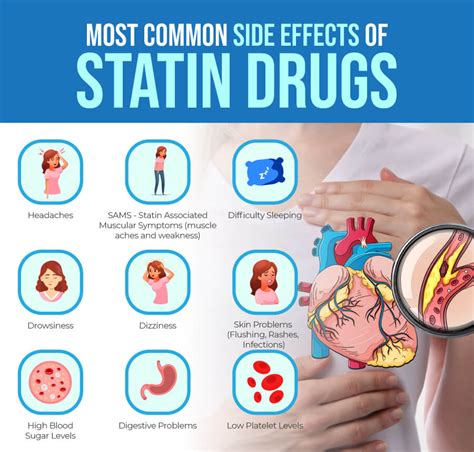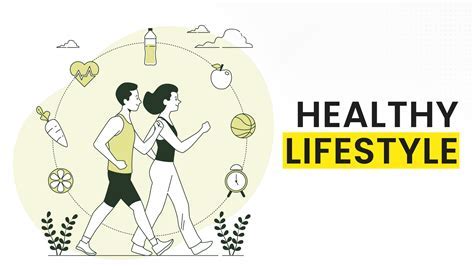Intro
Discover the alarming truth about statins. Learn about the 7 hidden side effects of statin medications, including muscle pain, memory loss, and increased risk of diabetes and liver damage. Understand the risks and benefits of statin therapy and how to minimize adverse effects. Get informed and take control of your heart health.
Statins are a popular class of cholesterol-lowering medications that have been widely prescribed to millions of people worldwide. While they can be effective in reducing the risk of heart disease and stroke, statins can also have some hidden side effects that you need to know about. In this article, we will delve into the potential side effects of statins and what you can do to minimize them.
The Importance of Cholesterol Management
Before we dive into the side effects of statins, it's essential to understand the importance of cholesterol management. High levels of low-density lipoprotein (LDL) cholesterol, also known as "bad" cholesterol, can increase your risk of heart disease and stroke. Statins work by inhibiting the production of cholesterol in the liver, which can help lower LDL levels and reduce the risk of cardiovascular events.
Common Side Effects of Statins
While statins are generally well-tolerated, they can cause some common side effects, including:
- Muscle pain and weakness
- Liver damage
- Increased risk of diabetes
- Cognitive impairment
- Sleep disturbances
- Digestive problems
However, there are some lesser-known side effects of statins that you should be aware of.

1. Memory Loss and Cognitive Decline
Some people taking statins have reported memory loss and cognitive decline, including difficulty concentrating and confusion. While the exact mechanism is not fully understood, research suggests that statins may affect the brain's ability to produce cholesterol, which is essential for brain function.
2. Increased Risk of Cataracts
A study published in the Journal of the American Medical Association found that long-term use of statins may increase the risk of cataracts. The exact mechanism is not clear, but it's thought that statins may affect the lens of the eye, leading to cataract formation.
3. Reduced Coenzyme Q10 (CoQ10) Levels
CoQ10 is an essential nutrient that helps generate energy in cells. Statins can reduce CoQ10 levels, which may lead to fatigue, muscle weakness, and other symptoms. Supplementing with CoQ10 may help alleviate these symptoms.
4. Increased Risk of Myopathy
Myopathy is a condition characterized by muscle weakness and pain. Statins can increase the risk of myopathy, especially when combined with other medications. If you experience muscle pain or weakness, it's essential to talk to your doctor.
5. Negative Impact on Vitamin K2 Levels
Vitamin K2 is essential for bone health and blood clotting. Statins can reduce vitamin K2 levels, which may lead to an increased risk of osteoporosis and fractures.
6. Increased Risk of Neurodegenerative Diseases
Some research suggests that long-term use of statins may increase the risk of neurodegenerative diseases, such as Parkinson's and Alzheimer's. However, more research is needed to confirm this association.
7. Impact on Mitochondrial Function
Mitochondria are the energy-producing structures within cells. Statins can affect mitochondrial function, leading to fatigue, muscle weakness, and other symptoms.
Minimizing the Side Effects of Statins
While statins can have side effects, there are ways to minimize them. Here are some tips:
- Talk to your doctor about your concerns and any symptoms you're experiencing.
- Consider taking CoQ10 supplements to alleviate fatigue and muscle weakness.
- Maintain a healthy diet and lifestyle to reduce your risk of heart disease.
- Get regular check-ups to monitor your cholesterol levels and liver function.

Alternatives to Statins
If you're concerned about the side effects of statins, there are alternative options available. Here are some alternatives:
- Plant-based statins, such as bergamot and red yeast rice, which may have fewer side effects.
- Omega-3 fatty acids, which can help lower triglycerides and reduce inflammation.
- Dietary changes, such as following a Mediterranean-style diet, which can help reduce cholesterol levels.
What to Do If You're Experiencing Side Effects
If you're experiencing side effects from statins, it's essential to talk to your doctor. They can help you weigh the benefits and risks of statins and explore alternative options.

Conclusion
While statins can be effective in reducing the risk of heart disease and stroke, they can also have hidden side effects. By understanding these side effects and taking steps to minimize them, you can make informed decisions about your health. Remember to talk to your doctor about your concerns and explore alternative options if necessary.
What are the most common side effects of statins?
+The most common side effects of statins include muscle pain and weakness, liver damage, increased risk of diabetes, cognitive impairment, sleep disturbances, and digestive problems.
Can statins increase the risk of cataracts?
+Yes, long-term use of statins may increase the risk of cataracts. However, more research is needed to confirm this association.
What can I do to minimize the side effects of statins?
+Consider taking CoQ10 supplements, maintaining a healthy diet and lifestyle, and getting regular check-ups to monitor your cholesterol levels and liver function.
